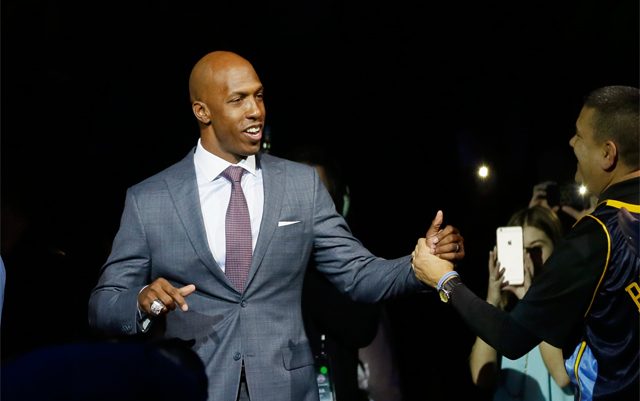After Golden State Warriors Coach Steve Kerr recently admitted to using medical marijuana a couple times to try and relieve his back pain, everyone and their mother has come forward with an opinion, especially those with connections to the NBA.
The latest person to make headlines over the issue is former all-star point guard Chauncey Billups, who led the Detroit Pistons to a world championship in 2004, winning the MVP of the NBA Finals in the process.
Billups was recently part of a panel on ESPN that was discussing the issue of medical marijuana in the NBA. “For medicinal use, I think we absolutely need to have that conversation,” Billups said. “The Players Association, they need to talk about that with the NBA, because there’s a lot of science behind it… because we’ve been through a ton of injuries. I’ve seen a piece on Jason Williams, who was the No. 2 pick in the draft, that talked about him being addicted to Oxycontin and pain pills, and it would have been a much better and much easier thing to have marijuana as a relief.”
Billups went on to say that some of his teammates would get high before games, and for some of them, he preferred that they did. “I had teammates…I actually wanted them to smoke, they played better like that. It helped them focus in on the gameplan…I needed them to do that. I would rather them [smoke] sometimes than drink,” he said.
Some players used cannabis to get past their pregame anxiety, according to Billups.
While the NBA has one of the more lenient marijuana policies in the sports world, the substance is still illegal for players to use, for any reason, according to league rules.
The controversy over medical marijuana is not a new one when it comes to sports; the last several years have seen an ongoing battle between former and current football players and the NFL over its use. It is a battle that is unlikely to be settled anytime soon.
In fact, marijuana use in any workplace – whether in the arenas and stadiums of professional sports leagues or the stockroom at Wal-Mart – is going to be a controversial issue for years to come. The stigma that comes from 80+ years of propaganda and prohibition will not be wiped away overnight, but at least now we have a start on the discussion and the cleansing of that stigma.






